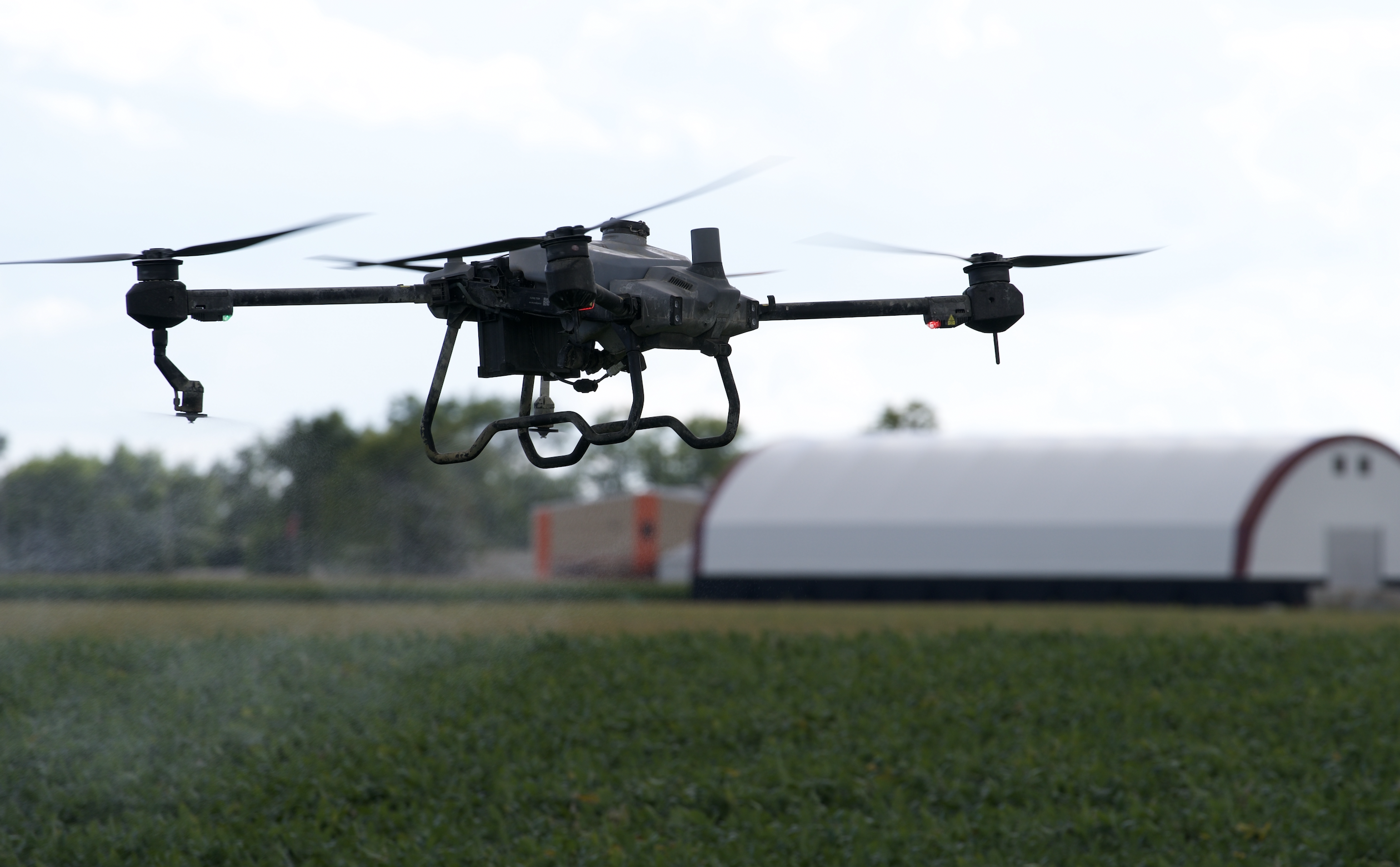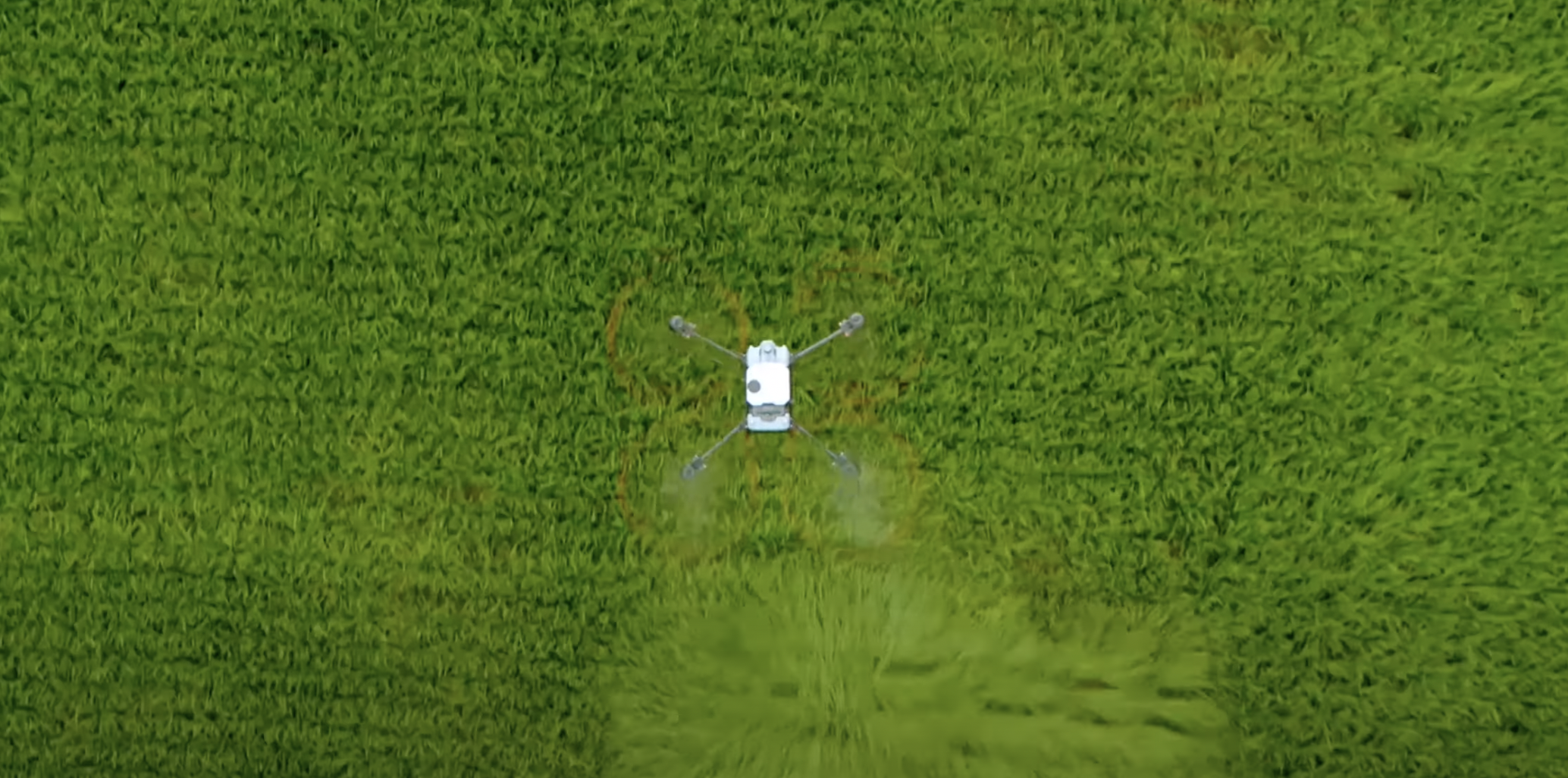

Introduction: In the ever-evolving realm of agriculture, the adoption of cutting-edge technology is reshaping traditional farming practices. One such innovation that stands out is crop spraying with drones. This blog explores the three most significant advantages of employing drones for crop spraying over conventional tractors. As we delve into the transformative power of “Crop Spraying with Drones,” it becomes evident that this technology is poised to revolutionize the way we cultivate our fields.
Precision Agriculture: One of the standout advantages of crop spraying with drones is the unparalleled precision they bring to the field. Unlike tractors, which cover larger areas in a more generalized manner, drones can navigate with pinpoint accuracy. Equipped with advanced sensors and GPS technology, drones ensure that pesticides, fertilizers, or other treatments are applied exactly where needed. This precision not only optimizes resource utilization but also minimizes the environmental impact by avoiding over-application, contributing to a more sustainable and eco-friendly approach to farming.
Efficiency and Speed: Drones offer a remarkable boost in efficiency and speed compared to traditional tractor-based spraying methods. Drones can cover large agricultural areas swiftly, reducing the time required for spraying operations. Quick deployment and agile navigation mean that farmers can respond rapidly to changing conditions, such as pest infestations or diseases, minimizing crop damage and ensuring timely interventions. The efficiency of drone spraying translates to increased productivity and cost savings, making it a compelling choice for modern farmers seeking streamlined agricultural practices.
Minimized Soil Compaction: Traditional tractors, while essential in farming, can contribute to soil compaction, negatively impacting soil structure and health. In contrast, drones are lightweight and operate above the soil surface, eliminating the risk of compaction. By avoiding soil compaction, drone spraying promotes healthier soil, optimal root growth, and improved nutrient absorption by plants. This not only enhances overall crop development but also contributes to increased yields over time. The reduction in soil compaction is a critical advantage that underscores the environmental and agricultural benefits of choosing drones for crop spraying.
Conclusion: The adoption of drone technology for crop spraying heralds a new era in agriculture, offering precision, efficiency, and environmental sustainability. As we navigate the fields of tomorrow, the advantages of “Crop Spraying with Drones” become increasingly evident. From precision agriculture to enhanced efficiency and minimized soil compaction, drones are proving to be a transformative force in modern farming practices. As farmers seek innovative solutions to maximize yields and minimize environmental impact, drones stand as a promising ally in cultivating a future of sustainable and productive agriculture.

AgFly provides aerial Agriculture solutions where traditional methods are not possible and in areas where aerial applications increase efficiency and/or yields.
© 2026 All Rights Reserved.